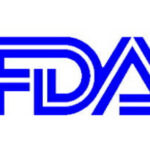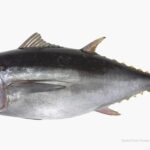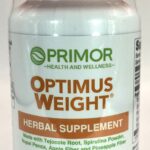The FDA has revoked authorization for the use of FD&C Red Dye No. 3 in food and ingested drugs, based on the Delaney Clause. That clause prohibits FDA authorization of a food additive or color additive if it has been found to induce cancer in humans or animals. The FDA revoked the authorization for some synthetic flavors based on this Clause in 2018. Two studies showed that cancer in laboratory male rats that were exposed to high levels of FD&C Red No. 3 occurred due to a rat-specific hormonal mechanism. This mechanism does not exist in humans. Relevant exposure to this color for humans is typically much lower than the exposures that caused the cancer in rats. Claims that the use of FD&C Red No. 3 in food puts people at risk are not supported by available scientific … [Read more...]
FDA Alerts About Use of Amanita Muscaria in Food
The FDA is alerting industry and consumers about the use of amanita muscaria, its extracts, and some of its byproducts, including muscimol, ibotenic acid, and muscarine, in food. The agency has decided that these ingredients do not meet the standard for use in food and that their use as ingredients may be harmful. People should avoid eating foods made with these ingredients. One of the products that did use amanita mascara extracts was Diamond Shruumz. Muscimol, a substance found in Amanita muscaria and related mushrooms, was found in nine Diamond Shruumz chocolate bar samples and four infused cones samples. Those products were linked to a deadly outbreak that sickened at least 180 people and hospitalized 73. There are three deaths potentially associated with that outbreak. These … [Read more...]
FDA Issues Final Guidance For Lead in Children’s Food
The FDA has issued final guidance for lead in children's food. These action levels reflect the levels of lead at which the FDA may regard the food as adulterated. While there are no safe levels of lead consumption, it is not possible to completely remove lead from every food as the heavy metal occurs naturally and is found in air, water, and soil. This guidance supports the Closer to Zero initiative to reduce exposure to contaminants through food to as low as possible. The action levels are 10 parts per billion for fruits, vegetables (except single ingredient root vegetables), mixtures (including grain and meat based mixtures), yogurt, custards and puddings, and single ingredient meats. The level is 20 parts per billion for single ingredient root vegetables, and 20 parts per billion … [Read more...]
FDA Issues Final Compliance for Preventing Scombrotoxin in Fish
The FDA has issued a final compliance policy guide (CPG) for preventing Scombrotoxin in fish. The adulteration of fish and fishery products with histamines can cause Scombrotoxin poisoning in humans. Histamine production can occur in fish as the flesh begins to decompose after death. The CPG will help the FDA address adulteration during surveillance sampling and testing and will increase consumer protection by lowering the levels of histamine in fish. In some species of fish, such as tuna and mahi-mahi, the muscle tissue can cause histamines to form because of the activity of enzymes produced by spoilage bacteria. Unless fish are quickly and properly chilled after the catch, histamines can accumulate. Once they are formed, these histamines cannot be removed by washing, freezing, … [Read more...]
FDA Finds More Supplements That Contain Yellow Oleander
The FDA has found more supplements that contain yellow oleander, a toxic plant that can cause serious illness and death. Yellow oleander can cause neurologic, gastrointestinal, and cardiovascular adverse health effects that can be severe or fatal. These three new products should not be consumed. If you have purchased them, take them back to the place of purchase or discard them according to your community's methods of getting rid of toxic substances. You can see pictures of these items at the FDA web site. The products include Creative Interiors, LLC/Privit Wellness, LLC Primor Health Optimus Weight. It was sold through Amazon. The firm has not yet committed to a recall. The second product is Innovacion Natural LLC SdB Elite Salud de Belleza that was also sold on Amazon. The FDA … [Read more...]
FDA Has Started a Streamlined Food Complaints Program
Have you ever wanted to tell the FDA about a problem with food? The FDA has started a streamlined food complaints program to make the process easier. The complaints can be about an illness, an injury, an allergic reaction, concerns about a dietary supplement, or any concern about defects in the safety or quality of an FDA-regulated food. This is part of the Human Foods Program. Until this new program was initiated, consumer complaints were directed to Consumer Complaint Coordinators in the FDA's Office of Regulatory Affairs. The phone numbers associated with those coordinators will no longer be active. Instead, consumers can call 1-888-SAFEFOOD (1-800-723-3663). Then, officials with the Human Foods Program will receive, triage, and evaluate complaints, and the new Office of … [Read more...]
FDA Revokes Regulation Allowing Brominated Vegetable Oil
The FDA has revoked the regulation allowing brominated vegetable oil (BVO) in food. This oil is modified with bromine. He agency concluded that the intended use of BVO in food is no longer considered safe. A series of studies conducted in collaboration with the National Institutes of Health found the potential for adverse human health effects from the use of brominated vegetable oil. The FDA announced plans to ban this product last year. And the state of California banned BVO along with other compounds before the FDA announced their decision. Brominated vegetable oil was removed from the Generally Regarded as Safe (GRAS) list in 1970. It was used in small amounts to keep the citrus flavoring from floating to the top in some beverages. Few beverages in the United States contain … [Read more...]













